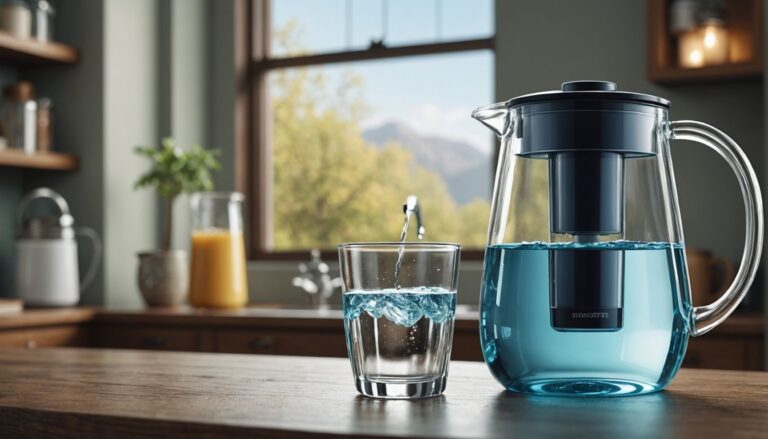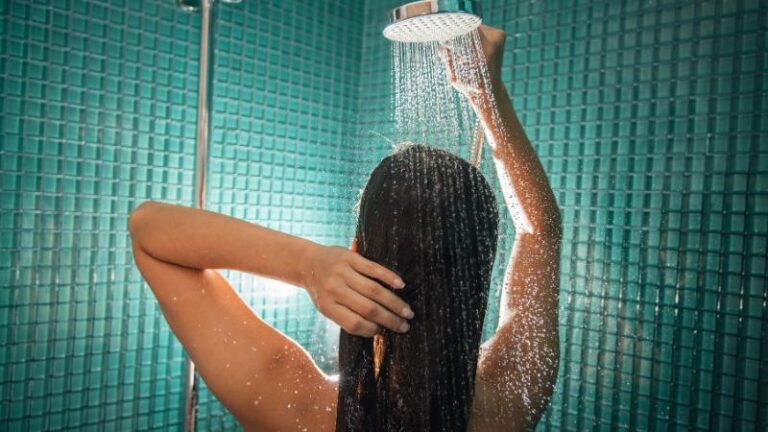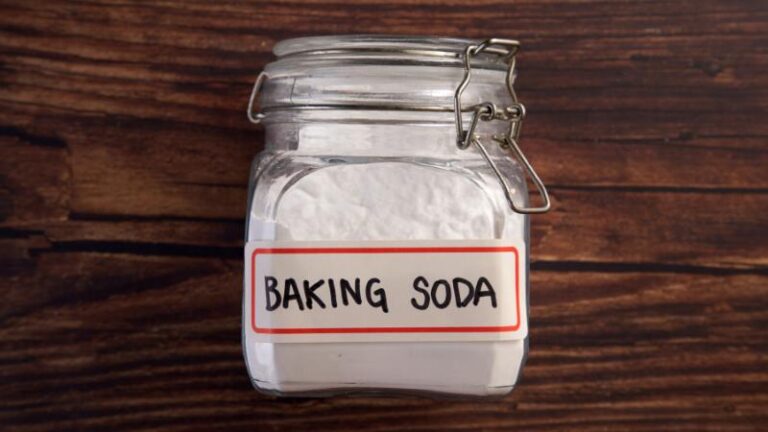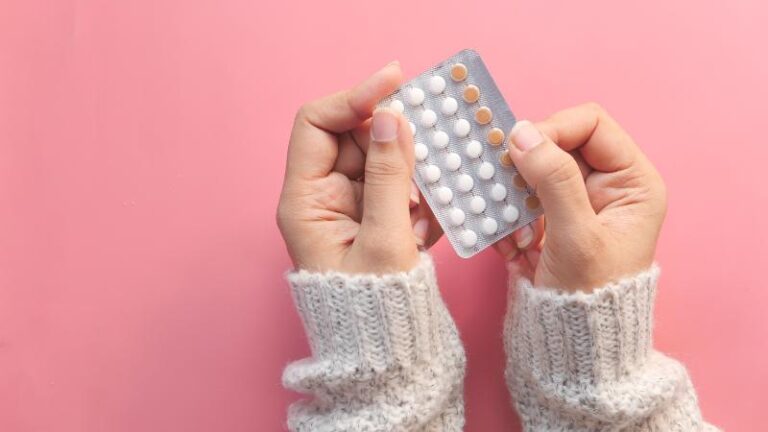5 Simple Ways to Stop a Migraine, Find Immediate Relief
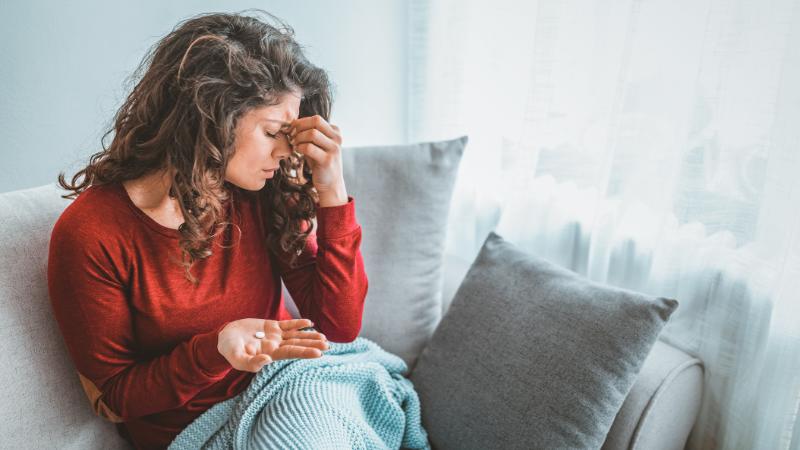
Are you one of the millions of people who suffer from frequent migraines? If so, you understand how disruptive they can be.
It can be hard to stay productive and enjoy life when you’re dealing with pain and other symptoms. But don’t give up hope!
Unfortunately, there is no definite cure for migraines yet, but there are ways to stop a migraine before it takes hold.
Read this article, and you will learn five simple strategies that can help you manage your migraine symptoms and get back to feeling your best.
Don’t let migraines keep you from living your life – take control and find relief today!
5 Ways to Stop a Migraine Fast
Are you ready to get back to living your life again? Perfect! Say goodbye to migraines with these simple and effective strategies that don’t involve drugs.
1. Take a break from activities and rest in a dark, quiet room

As you know, severe headache pain can be debilitating and make it difficult to focus on your everyday tasks.
The first strategy you can apply is to take a break from activities and get some much-needed rest in a dark and quiet room.
A dark room will help block out light and noise, which can trigger attacks in some people. Dark and quiet will help you relax, which can also help stop migraine pain in its tracks.
It’s easy as 1,2,3:
- Dim the lights and try to reduce noise levels, and prop yourself up with pillows to help reduce eye strain.
- Lie down in a comfortable position, close your eyes, and breathe slowly and deeply.
- Allow yourself time to relax and unwind, this is key when trying to stop a migraine attack.
When you feel ready to return to your daily activities, try to stick to a routine and take things slowly so that you don’t overexert yourself.
2. Apply a cold compress or ice pack to your forehead or the back of your neck
If you are suffering from a migraine, taking action as soon as possible is essential, because waiting will only prolong the pain.
Here’s the second strategy, apply a cold compress to your head or neck to reduce swelling and pain.
- Place a cold compress or ice pack on the forehead or back of the neck for 15-20 minutes, then take a break for another 15-20 minutes.
- Wrap the cold compress in a towel to avoid skin irritation, the last thing you want is a nasty skin rash from a cold compress!
- Reapply the cold compress every hour if needed, and continue to apply it as long as your migraine symptoms persist.
If cold is not for you, or if this trick can’t give you relief, you can also try to use a heating pad, which can help relax tense muscles and reduce pain.

How A New Piece Of Technology Provides The Drug Free Pain Relief You’ve Been Looking For
If you’re anything like me, you don’t want to use drugs or pills that you’re unsure about.
3. Massage your scalp and temples with essential oils
Massaging your temples and scalp with something like lavender essential oil or peppermint oil is one of the best ways to stop a migraine by relaxing your nerves, improving blood circulation, and reducing tension headaches.
Lavender oil is ideal for soothing tense muscles and nerves, and peppermint oil can also help reduce inflammation, which is another cause of regular migraines.
- Fill a large bowl with warm water and add a few drops of lavender and peppermint oils to the water.
- Dip a clean towel into the water and wring out the excess liquid, then place the towel over your head to gently massage your scalp and temples.
- Leave the towel on for 10-15 minutes, then rinse the towel with cool water and wring out the excess liquid again before wrapping the towel around your head again for another 10-15 minutes.
- Repeat this process as needed to stop a migraine from getting worse.
Do not apply essential oils directly to your skin, as this can irritate your skin and cause an allergic reaction in some people. Always dilute essential oils in a carrier oil before applying them to your skin or scalp.
4. Drink plenty of fluids, such as water or herbal tea

Drinking plenty of fluids, such as water or herbal tea, is a simple yet effective strategy for relieving a migraine. Make sure you always have a water bottle on hand and drink a glass of water every chance you get throughout the day.
Not only does staying hydrated help to alleviate symptoms such as head pain and nausea, but herbal remedies can also be incorporated into your fluid intake for added relief.
Herbal teas, for example, can provide natural pain relief and promote relaxation.
Peppermint tea, for instance, is known to have a soothing effect on the muscles and can help to ease tension headaches.
Similarly, ginger tea can help to alleviate nausea and vomiting associated with migraines.
Incorporating natural remedies such as these into your fluid intake can provide additional relief and help you to manage your migraines more effectively.
5. Avoid common triggers such as certain foods, stress, or bright lights
Foods
Maybe you are not aware, but certain foods can be headache triggers in some people, for example:
- cheese: some people are sensitive to the tyramine in cheese
- alcohol: drinking too much alcohol can lead to dehydration
- coffee: too much caffeine can cause headaches, so try to limit your intake of coffee, tea, and other caffeinated beverages
- chocolate: contains caffeine and theobromine, even if in very low quantity
- citrus fruits: they contain high amounts of citric acid, which can be a trigger for some people
- processed meats: due to the presence of nitrates and nitrites
Try to avoid them if the frequency of episodes of migraine becomes too high. A diet rich in fresh fruit and vegetables is always the best and can help you a lot.
Heavy meals can be a major migraine trigger, so it’s important for you to eat smaller meals more frequently throughout the day.
Eating heavy meals with large amounts of food can cause your blood sugar levels to spike and drop quickly, leading to headaches.
It’s also important to give yourself enough time between meals so that your body has time to digest the food properly.
Stress
Avoid stressful situations as much as possible. Try to get plenty of rest because lack of sleep is not only a common migraine trigger, but it can also make your symptoms worse.
A good strategy to alleviate stress levels is practicing relaxation techniques such as yoga, meditation, or deep breathing exercises.
In brief, try to maintain a healthy lifestyle, based on good food, good sleep, and regular exercise.
Sensitivity to Light
Exposure to light, especially bright lights can be a major migraine trigger for some people, so try to avoid them as much as possible.
Wear sunglasses when you’re outside and use dim lighting indoors. If you have to work in a bright light ambient, take frequent breaks and look away from the light source every few minutes.
Avoid using your computer or smartphone for at least 30 minutes before going to bed, because blue lights emitted from displays can disrupt your sleep patterns.

How A New Piece Of Technology Provides The Drug Free Pain Relief You’ve Been Looking For
If you’re anything like me, you don’t want to use drugs or pills that you’re unsure about.
Common Causes of Migraine

Knowing the most probable causes of migraines can help you avoid these triggers and prevent future migraines.
Physical stress
This is one of the most common causes of migraine headaches. Physical stress can come from a variety of sources, such as intense exercise, poor posture, carrying heavy objects, or even sleeping in an uncomfortable position.
To reduce the risk of a migraine, it is important for you to take regular breaks when engaging in physical activities, practice good posture, and use ergonomically designed furniture.
Obviously, getting enough sleep and taking time to relax can help you reduce physical stress and lessen the chance of a migraine.
Emotional stress
Emotional stress can be caused by stressful situations at work or home, or by dealing with a difficult person or situation.
This kind of stress can cause the release of chemicals called hormones and stress chemicals in the body, which can trigger a migraine episode.
Try to avoid stressful situations when possible.
Hormonal shifts
Hormones can cause the release of chemicals called neurotransmitters that cause blood vessels to dilate in the brain, which is another cause of migraines.
Changes in hormone levels can occur especially in pregnant women, in women in general, during menstrual periods, menopause, puberty, or when taking certain medications.
To manage hormonal changes and prevent migraines, try to stick to a healthy diet and avoid eating processed and packaged foods as much as possible.
Exercise regularly, get enough sleep, and avoid stressful situations to help prevent hormonal changes and reduce the chance of a migraine attack.
You may also like: How Long is Too Long to Have a Migraine?
Changes in sleep patterns
Changes in sleep patterns can be a major contributing factor to migraine headaches. Not only can sleeping in an uncomfortable position lead to irregular sleeping patterns, but not getting enough sleep each night can also contribute to these changes.
Poor posture while sleeping as well as environmental factors like too much light or noise can significantly interfere with our sleeping habits and disrupt our body’s normal sleeping cycle.
If you are feeling under stress it is much harder for the body to relax and prepare for good quality sleep, leading to further disturbances of the natural nightly cycles that our bodies need to function properly.
It’s important to recognize when these unhelpful changes in sleep patterns may be occurring and take steps to limit them such as creating a comfortable and dark space conducive to quality sleep as well as other relaxation techniques.
Overuse of medicines
Overuse of medication, also known as “medication overuse headaches“, can be another trigger.
When painkillers or other headache medications are used too frequently, they can actually cause the brain to become sensitized to pain and increase the frequency of migraines.
This can create a vicious cycle, where a person takes pain medicines to relieve a bad headache, but then experiences another migraine shortly after due to the overuse.
It’s important to be mindful of how often you are taking medication and to consult with a healthcare professional if you find yourself relying too much on medicines.
They may suggest alternative treatment options or strategies, such as identifying and avoiding triggers, practicing relaxation techniques, or making lifestyle changes.
Weather changes
As the temperature and barometric pressure fluctuate, so do our bodies.
The release of chemicals called prostaglandins during these changes can cause our migraine symptoms to flare up. Imagine a storm brewing inside your head, just as the clouds gather outside.
It can be difficult to predict when these changes will happen, but by paying attention to the forecast and being mindful of our own bodies, we can try to mitigate the impact.
Wearing sunglasses on sunny days and trying to maintain a comfortable temperature at home can also help. So next time you feel a migraine coming on and the sky is darkening, you’ll know it might not just be in your head.

How A New Piece Of Technology Provides The Drug Free Pain Relief You’ve Been Looking For
If you’re anything like me, you don’t want to use drugs or pills that you’re unsure about.
Wrapping Up on The Ways to Stop a Migraine
I feel you, I had headache days many times, but thanks to the strategies and the simple ways to stop a migraine I shared with you in this article, I always manage to, at least, reduce my pain from getting worse.
No matter how difficult it may seem, know that you can find relief from your migraines. You are strong and capable, and with the right treatment plan and support system, you can manage your condition and live a life filled with joy and peace.
Remember, you are not alone in this journey. Reach out to your loved ones for support and never give up hope.

